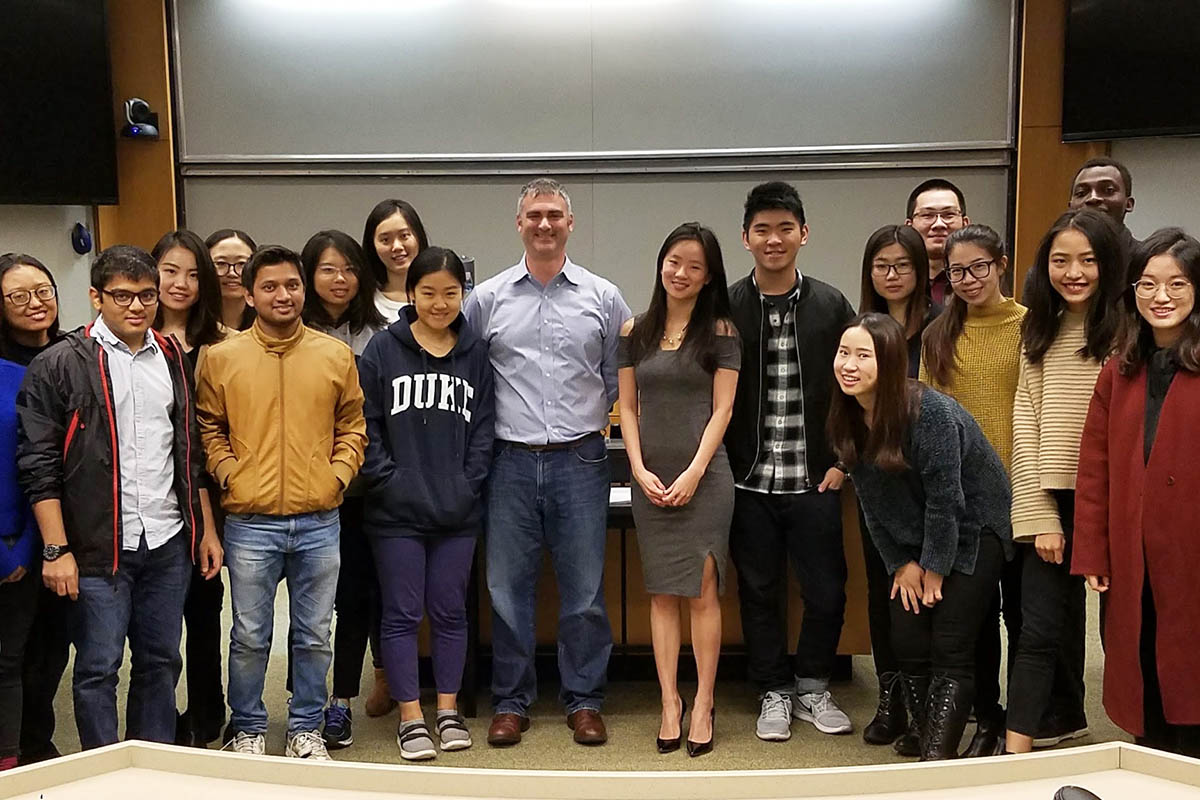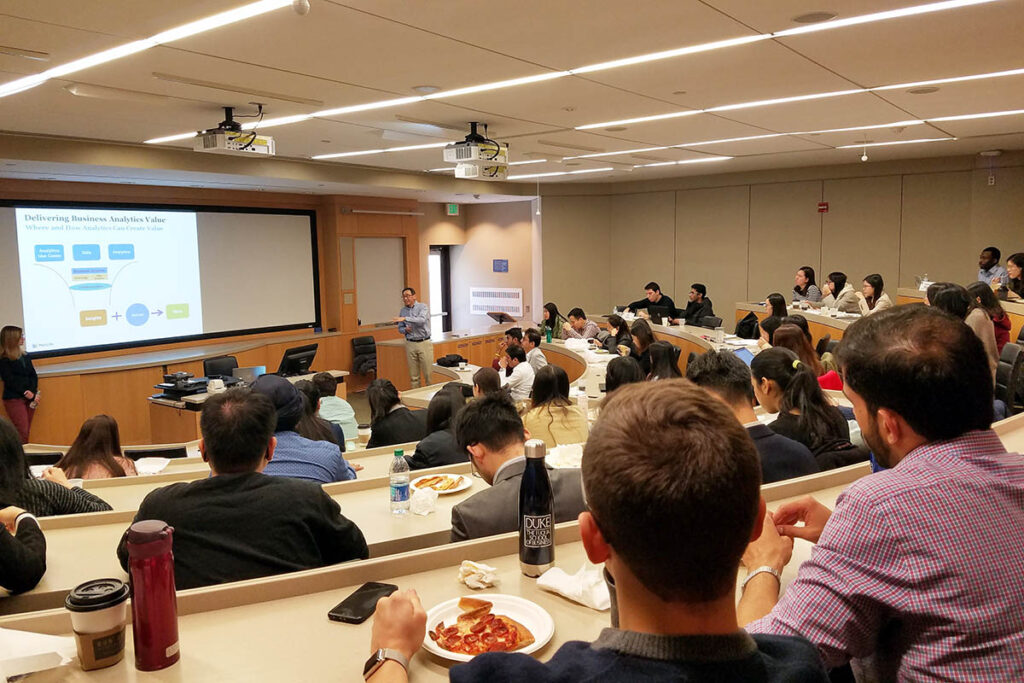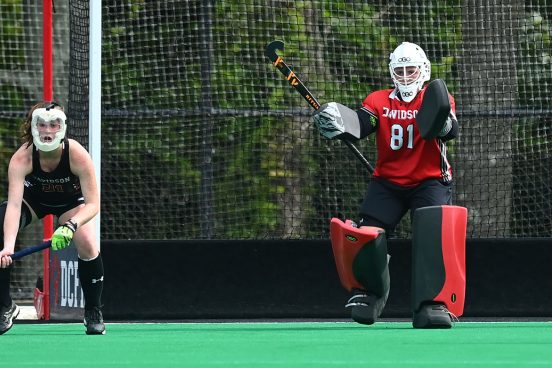Duke MQM Student Blog

The Career Search: It’s Called a “Job Hunt” for a Reason

As associate director for MQM: BA in Fuqua’s Career Management Center (CMC), I understand the job market is a competitive place. It’s also an expansive realm with opportunities that fit each individual student’s interests and experience. Our students use a range of techniques and resources to conduct their searches: anchoring in their strengths and motivations, targeting based on broad research, and bridging credibly to exciting opportunities. The best searches also combine two complementary approaches I like to call hunting and gathering.
Picture this: You see a job posted online—on a public site, Fuqua’s Global Talent System (GTS) career portal, or Duke’s CareerConnections—that looks like a match. You fill out the application, upload a tailored resume, and wait for results. You’ve just gathered a job opportunity from a field of jobs that are already posted. You’re qualified and it seems like a fit, but it’s likely that many other seekers have spotted this job and also chosen to gather it. A job search that relies solely on gathering may allow scale and save time, but chances are the field is incredibly crowded. Some additional steps may remarkably improve your odds.
Hunting requires a different mix of risk and effort, including a sizeable time investment and possibly daunting personal engagement. However, a good hunt reaches opportunities ahead of the crowd and can position candidates with clearer alignment and advantages. Hunting techniques include:
- Self-reflecting to anchor your search strongly in your personal values, assets, and motivations
- Using Fuqua’s library, Career Canvas, and other online resources to research and target companies and roles that align with your dream company or role
- Networking to find contacts who’ll help you learn about and get closer to the work you want—use your Fuqua, Duke, and undergraduate networks!
- Building advocates who can influence your candidacy before and while applying to a job
My colleagues and I deliver career management knowledge and skills to students in classroom settings, through workshops and events with employers, and with one-on-one coaching to support their job searches. This is our first graduating class of MQM: BA students, and we’re seeing momentum. Students have secured jobs at firms such as IBM, Wayfair, Red Hat, Ernst & Young, and Novartis. Here’s how a handful of our students have combined the hunting and gathering approaches to find jobs:
Amr Seifeldin
Track: Strategy
Hometown: Cairo
Position Accepted: Junior Associate at McKinsey & Company’s Dubai office
Amr consulted with the CMC at each step of his process—we helped him refine his CV and his cover letter, structure his networking pitch, and prepare for informational and case interviews.
Amr also did a significant volume of connecting and networking on his own. He reached out to MBA students who had worked at McKinsey, as well as Fuqua alumni who currently work there. He expanded his reach beyond the Fuqua network to ask questions of colleagues from his undergraduate years who now work at McKinsey Dubai.
Amr said connecting with so many different individuals helped him understand which qualities McKinsey looks for and helped him prepare for cases.
Ben Vaughan
Track: Strategy
Hometown: Chicago, Illinois
Position Accepted: Operations and Data Manager at Centra Health in Lynchburg, Virginia
Ben worked with us to develop a strategy that outlined how he would search for and apply to positions. He relied heavily on building connections and networking, but also expanded his knowledge base and technical skills in his free time so that his work would speak for itself and connections he made would more readily advocate for him. Finally, we talked through how to align expectations and negotiate terms since his role is new within Centra.
Rutu Shah
Track: Forensics
Hometown: Mumbai
Position Accepted: Financial & Risk Advisory Consultant at Deloitte in New York
Rutu went through Deloitte’s on-campus recruiting process, which consisted of a coffee chat, two first-round interviews, and two second-round interviews. But she also did research on her own and connected with alumni from Deloitte to understand more about the role and daily work in the position. This helped her determine how the job could be a good fit for her.
Rutu attended practice sessions with our office during her whole process and prepared extensively for both her technical and behavioral interviews.

Matthew Bemtgen
Track: Finance
Hometown: Helmsange, Luxembourg
Position Accepted: Technology Advisor Program at Ernst & Young in Charlotte, North Carolina
Matthew applied for this position through our GTS career portal. He had previous experience with the company because he’d attended the Ernst & Young Emerging Leaders Summit. Initially, a recruiter reached out to him to chat about his experience there, which led to a phone interview followed by a day of interviews at EY’s offices.
Li Zheng
Track: Forensics
Hometown: Shanghai
Position Accepted: Financial Crimes Unit Technology Experienced Associate at PricewaterhouseCoopers Advisory in New York
Li applied on the PwC career website and went through a phone interview and a final-round interview in New York. Li also consulted with us to talk through offer timing and details including how to evaluate and negotiate aspects of compensation and how to navigate conversations in the acceptance process with PwC.
Sera Yalaz
Track: Marketing
Hometown: Adena, Turkey
Position Accepted: Business Analyst for Marketing at Red Hat in Raleigh, North Carolina
Sera relied on networking to secure this position. When Red Hat’s senior director of strategy visited campus in the fall, she sought career advice by asking how to navigate the tech industry without a tech background. The senior director then reached out to Sera when a marketing position became available, introducing her to his colleague at Red Hat. Sera went through a couple of different informational phone calls before she was invited to the office to interview.
Seeing these success stories is one of the reasons I love working with students and encouraging them to be open and proactive in their career search. We seek to provide tools and resources that enable students to navigate and thrive in the process. It can be stressful for them, with online postings as plentiful as they are elusive, but I remind students that the most successful searches integrate both approaches I outlined. Gathering jobs is an efficient way to get scale in a search, but hunting means anchoring strongly, targeting well, and building solid personal bridges to good-fit opportunities. I’m proud of the success students are seeing and the ways we support them in the CMC!



